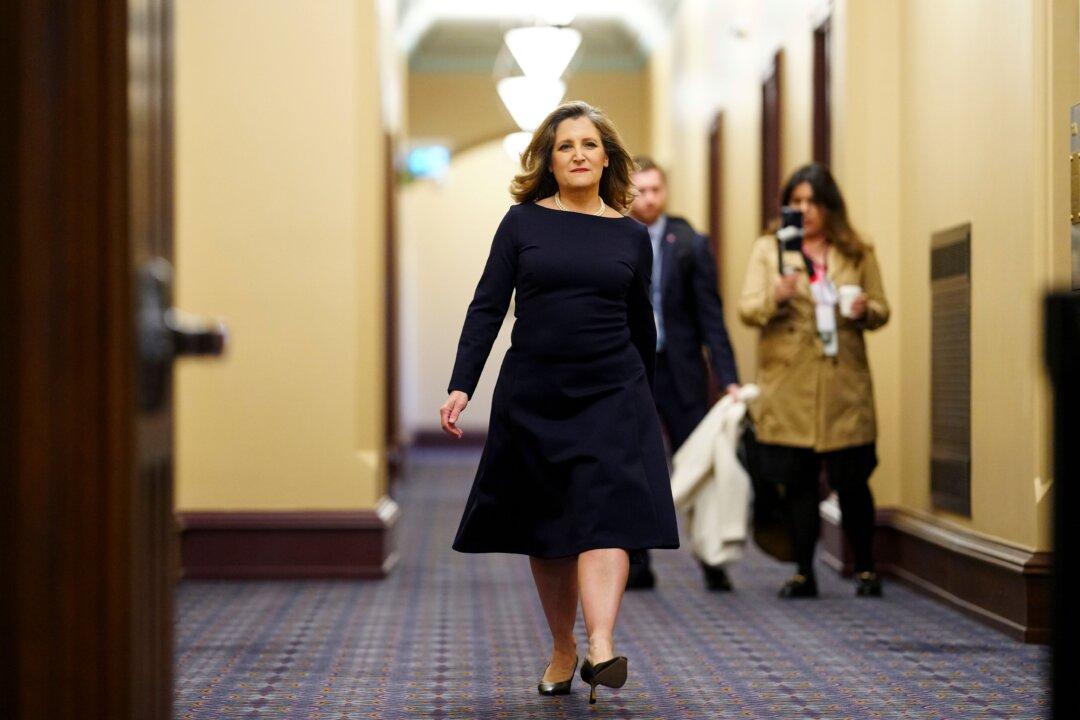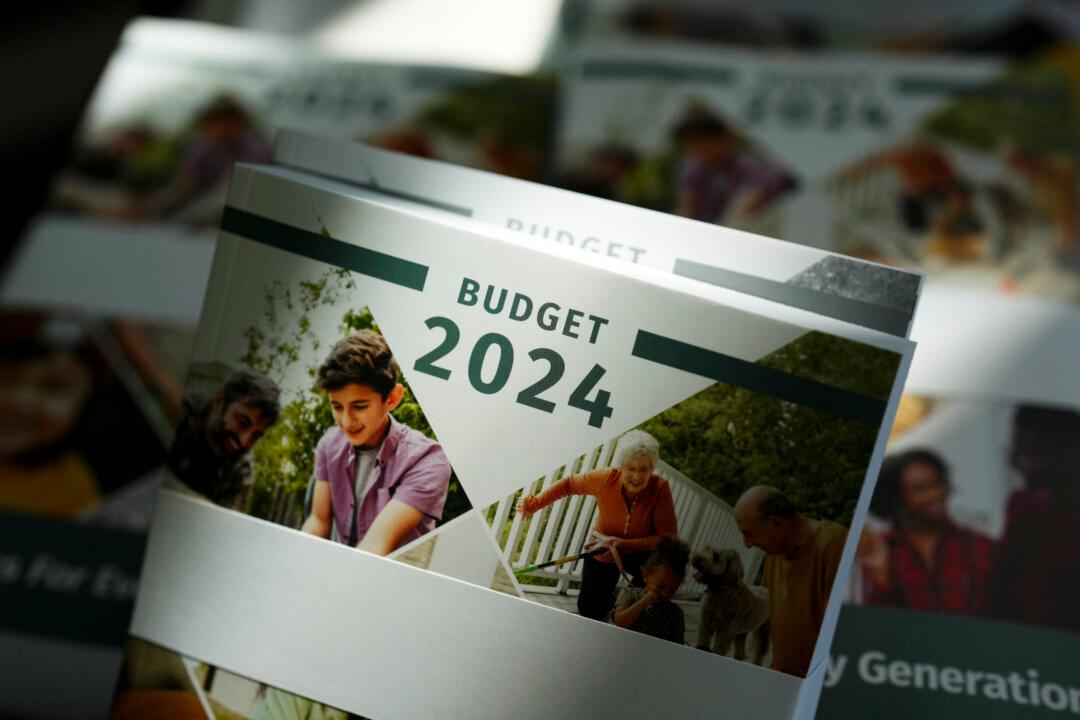The Liberal government is increasing taxes on the rich and going further into debt to finance higher expenses, according to the annual budget presented on April 16.
Deputy Prime Minister and Minister of Finance Chrystia Freeland, who proposed $52.9 billion in new spending as part of the plan, predicted a deficit for the next five years as expenses rise.

